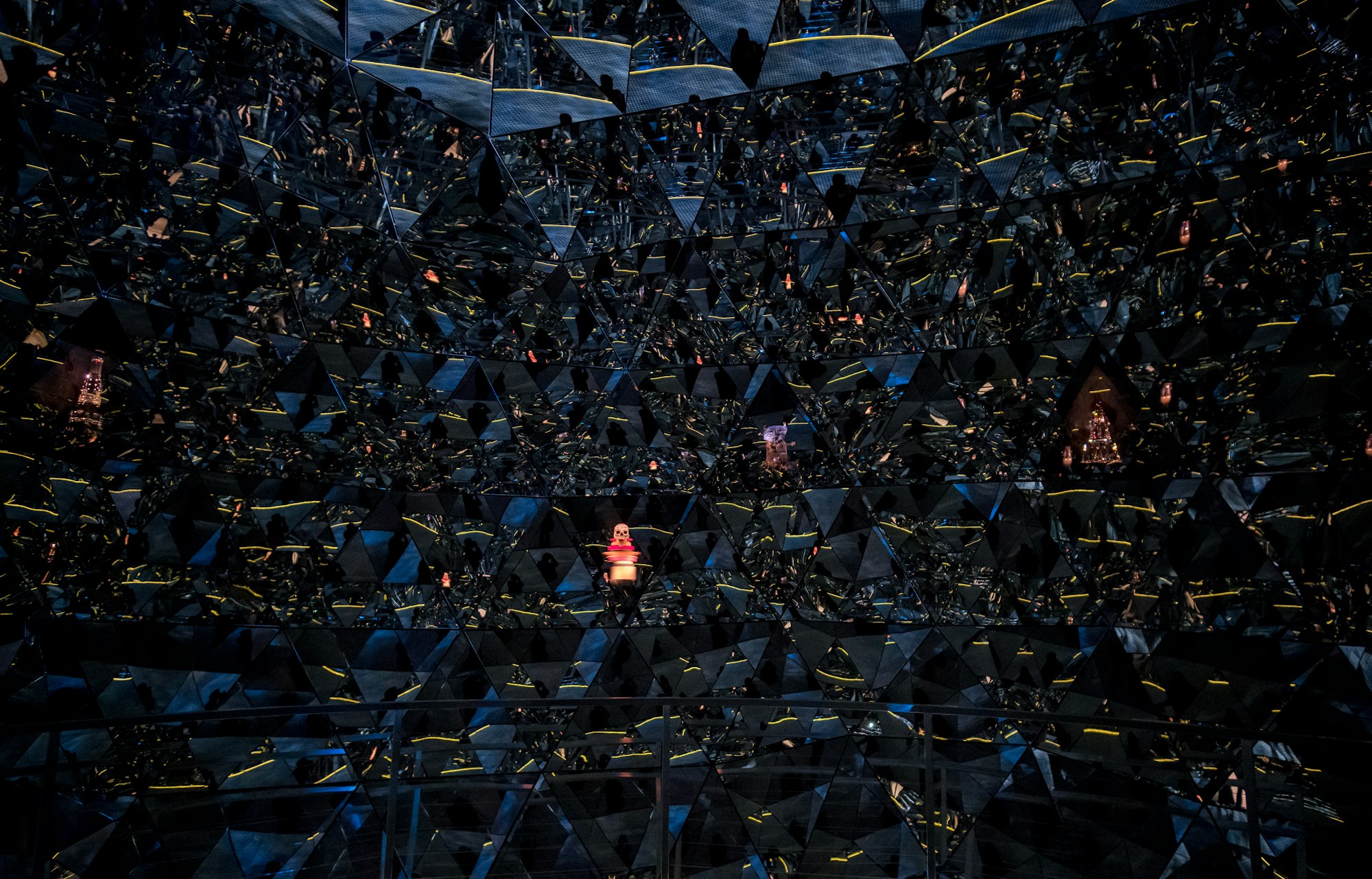Funhouse Mirrors

We spend most of our lives wandering a house of distorted mirrors. The people we meet, and their interactions with us, project reflection of ourselves. Distorted in many different ways. Our focus shifts from them to us. We compare what we are seeing in that reflection to what we know is the truth. The truth only we know. Who we really are. We shift until the reflection in the funhouse mirror matches what we expect. The only problem is, the mirrors, such as they are, exist not in others but within ourselves. The real version of us is the distorted one. The sooner we learn that, the sooner we can all stop living in a carnival of our own making.
Here in Australia it's common to hear about tall poppy syndrome. The idea that if you stick your head too far above the crowd, the crowd will pull you right back down. There is a sentiment that ambition is for the foolish or the Americans. I don't know where this came from. The myth is often that our convict past lead to a distaste for the elite. Whatever the cause, tall poppy syndrome hurts culture far more than protects it. Whether here in Australia or anywhere in the world. The root of the fear that causes it comes from that distorted mirror effect.
As humans we're both selfish and empathetic. A big part of relating to others is imagining ourselves in their situation. We mimic facial expressions to determine how to respond. When we see others winning, fear hit us. Most of us like to believe that all our doors are still open. When we see someone else too far in front it makes us worry. What if that door is closed? That fear drives us towards loss-aversion. We must do what we can to keep that door from shutting. To keep our options open. For many that means writing off success as pure luck. Telling ourselves that it is only a matter of time before the fall. So much time in our own heads. Distorting reality to match the image we have of ourselves. An identity that is never truly on show and doesn't really exist. Unless we find a way to overcome the disconnect, we're likely doomed to a life of mediocrity.
To combat this problem, to get out of our heads, we need to minimise our identities. Without planning, we become a complex tangle of ideas and beliefs. Opinions shift from a current state of the facts to a cornerstone of who we are. We polarise and cement ourselves into existence. We hate broccoli. We're strong conservatives. We can't stand people who talk on their phone while ordering coffee. These ideas become a part of us. The mirrors in our minds distort larger and larger scenes. Scenes that become increasingly difficult to reconcile to the world. We become bitter. Unless, that is, we work to keep our identity small.
A small identity doesn't mean a lack of opinions. It doesn't mean eating all foods and invalidating our ballot papers. It means knowing that those things are not who we are. There is no pride in being the friend who won't eat certain foods and makes that a cornerstone of their identity. To shrink our identity we need to look inward. We need to know that when gazing in we see distortions. But the more we look at them, the more we see things for what they are. We are not our internal feelings. Those things we cling to aren't us. The pieces remain but they separate. The deeper we look, the more that peels away. Look hard enough and we realise there is nothing.
When we realise there's nothing, we're free to aim for the stars. We know that we aren't our ideas, our work or other's opinions of those things. They are all real, and we can seek to perfect them, but we can do so from a place of objective reality. We can become obsessed with creation and solving problems knowing they do not define us. And when we realise our minds are full of fun house mirrors. That those mirrors live in all of us. Then we can engage with each other from a foundation of hope. Wanting to see others succeed not because it defines them or us. We do it because a pursuit of greatness, in any form, is beautiful.
